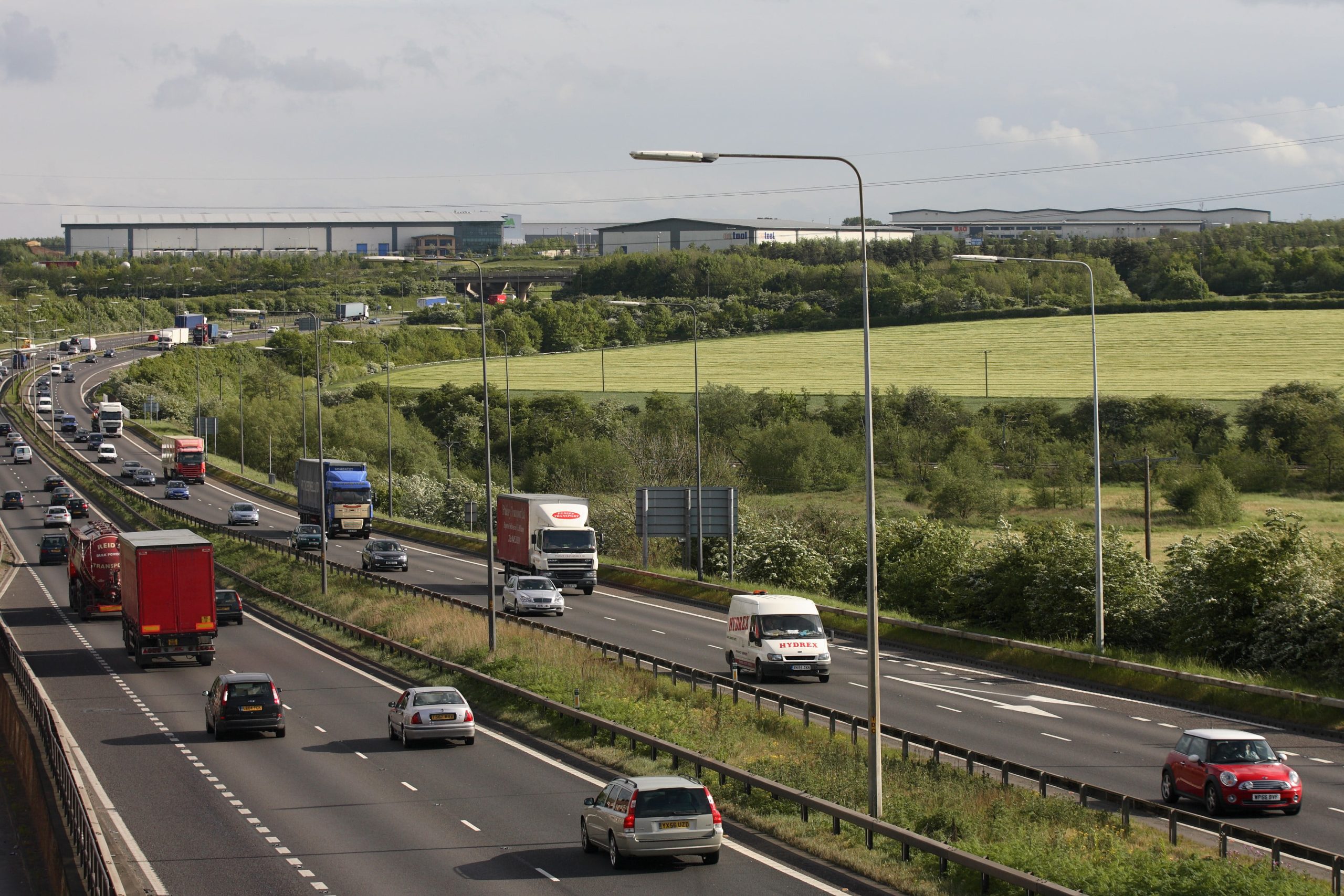Picture credit: Stuart Bailey
Many businesses are continuing to return to the workplace, while others are increasingly adopting a hybrid model of balancing office life with staff remote working.
Here we chat to a range of organisations about how this affects the commute – and how the South Yorkshire transport community has addressed the challenges and opportunities created by the pandemic.
South Yorkshire Passenger Transport Executive (SYPTE) 
Tim Taylor, director of customer services
What measures have you put in place during the existing restrictions to ensure passenger/staff safety?
In interchanges, we’ve put enhanced cleaning regimes in place which include extra attention to ensure doors, handrails, lifts and ticket machines remain disinfected.
We’ve installed hand sanitiser dispensers, and our toilets are currently free of charge for access to handwashing facilities.
We’re using signage, seat stickers and floor vinyls to help with social distancing and to manage queuing. We’re still monitoring customer movements to keep people safe.
Capacity on board services has been limited to allow for social distancing, though on 17 May bus operators increased capacity by making most of their front-facing seats available.
We’re still encouraging people to wash or sanitise their hands regularly when they travel, leave windows open on board and keep a safe distance where possible. And of course, you should continue to wear a face covering when you use public transport, unless you’re exempt.
How do you feel the South Yorkshire transport community has addressed the challenges and opportunities created by the pandemic, compared with others in your industry nationally?
Locally we’ve worked really well together as an industry to maintain services for key workers, and now for people who need to travel as things have opened up.
We’ve worked closely with colleagues in central and local government, as well as industry bodies, to ensure our approach in South Yorkshire is aligned with the wider public transport industry. However, we’ve been mindful of our residents’ needs, our geography, the needs of our local businesses and protecting the public.
We’ve definitely seen a closer day-to-day working relationship with key organisations locally including Public Health, South Yorkshire Police, the four local authorities, larger employers and education settings over the last year or so – and with the public transport operators too. That’s been essential to be able to keep people moving and ensure safety for passengers when they’re using our services.
With restrictions continuing into July, how well-prepared do you feel our region’s transport sector is?
The public transport network in South Yorkshire is largely running now as it was pre-pandemic. Services are available, and there is capacity. We know people have really missed certain things since last March, and we want to let everyone in South Yorkshire know that public transport is here, it’s safe and there are loads of options within the network to help you shop, work and play.
The effort that’s been put in during the pandemic, from everyone we’ve worked with, has been phenomenal and under truly exceptional circumstances.
So we’re proud to say that, extended restrictions or not, there’s a seat for you on our public transport network, and we can’t wait to welcome you!
 TransPennine Express
TransPennine Express
Darren Higgins, commercial director
What measures have you put in place during the existing restrictions to ensure passenger/staff safety?
We’ve been keeping customers informed every step of the way through our reassurance campaign, providing crucial information pre-travel, during the journey and onboard.
We added more signage for social distancing and promoted wearing face coverings, continually re-evaluating how to adapt to the current government guidelines.
Seat reservations for advance bookings have been reintroduced to identify available seating onboard as current permitted capacity is 40 per cent of pre-pandemic levels.
Across our network, we’ve invested heavily in our enhanced cleaning programme across our trains and stations, with an additional 20 teams of onboard cleaners to reassure and keep customers and our colleagues safe.
We’ve encouraged the use of digital ticketing by promoting smart and barcode tickets and launching more contactless payment solutions – tickets can be purchased online via the TransPennine Express website or using the TPExpress App where you can now pay using Apple Pay, Google Pay or PayPal.
This has also helped reduce customer touchpoints and the need to visit ticket offices and ticket vending machines.
We received the ‘We’re Good to Go’ accreditation from Visit Britain, confirming that customers can travel with us safely and confidently. We’ve also supported the Rail Delivery Group’s (RDG) safety travel pledge confirming our commitments to COVID-19 safety across our stations.
How do you feel the South Yorkshire transport community has addressed the challenges and opportunities created by the pandemic, compared with others in your industry nationally?
At the start of the pandemic, we saw customer numbers drop to five per cent of previous volumes but gradually we’re seeing customers returning to the office, so as an industry we’ve needed to respond to reflect this demand.
As a transport community, we’ve worked collaboratively to provide services to key workers and adapted the timetable as the pandemic evolved and lockdowns changed. Fundamental to supporting customers on their journeys has been offering more digital and contactless solutions, and providing more enhanced communications.
With restrictions continuing into July, how well-prepared do you feel our region’s transport sector is?
As a business we continue to monitor the situation and government guidelines really closely. We are running more than 80 per cent of our pre-pandemic timetable but as customer numbers look to increase, we’ll ensure we have the right timetable and the strong performance to support them.
Some customers may have not travelled with us for over 12 months so it’s about giving them the correct information to reassure them prior to their journey and give them additional help along the way.
We’ve recently launched our Flexi Season ticket, a new product offering eight days of travel in 28 days. This ticket is available between two stations at any time providing customers more options for hybrid and flexible working.
Good Travel Management Ltd
Sarah Walton, business development manager 
What measures have you put in place during the existing restrictions to ensure passenger/staff safety?
We have been in regular contact with our customers to determine what they, and their travellers, need to feel safe and confident. We have clients operating in ‘essential’ sectors, such as engineering, construction, and offshore industries – who have been able to travel – and used their feedback to adapt our services and advice for all clients.
Clear and relevant information regarding restrictions and requirements – in addition to receiving pro-active advice and guidance – are key.
We created several resources to assist with this, which feature on our COVID-19 Business Travel Guidance Hub and includes checklists for travellers to use before, and during, travel to guide and prepare them for an easier and safer trip.
We update it with the latest travel restriction information, safety measures put in place by travel operators, and advice on how we help organisations to amend their travel policies ensuring they are relevant for travel in challenging times
We moved many customers from online booking to dealing directly with our team of consultants who have the experience and knowledge of ever-changing travel restrictions and finding fares and rates that allow maximum flexibility.
We proactively provide travellers, and their employers, with advice and the latest information before, and during, any trip. Having our support during the trip, should plans change due to amendments to travel restrictions or advice, is a key benefit.
Additional travel booking complexities, due to the pandemic and Brexit, has seen a shift by companies from booking travel themselves to using us to manage their travel requirements.
How do you feel the South Yorkshire transport community has addressed the challenges and opportunities created by the pandemic, compared with others in your industry nationally?
Organisations and operators throughout the travel supply chain rapidly changed their working operations to ensure travellers felt safe and confident to travel.
They also fast-tracked innovation and adaptation of existing services that will continue to provide benefits for travellers post-pandemic.
With restrictions set to continue into July, how well-prepared do you feel our region’s transport sector is?
Operationally it is very well-prepared. We’ve been part of a lot of pro-active collaboration between operators to make travelling as safe and as simple as possible for passengers. That collaboration has brought about changes that make the sector, and our business, operationally flexible.
 TravelMaster
TravelMaster
Matt Smallwood, managing director
What measures have you put in place during the existing restrictions to ensure passenger/staff safety?
TravelMaster’s role with passengers is sort of indirect. We provide the tickets, and our operator partners provide the service.
Primarily, we’ve used our comms channels to communicate the government and operator public transport guidance while also encouraging, as much as we can, the purchase of our tickets off-vehicle to help reduce the contact between frontline staff and members of the public.
How do you feel the South Yorkshire transport community has addressed the challenges and opportunities created by the pandemic, compared with others in your industry nationally?
I think the transport sector, at large, has responded quickly and proactively to the challenges posed by the pandemic. The cleaning regimes in place mean buses, trams and trains have been recognised as amongst some of the safest places throughout the pandemic.
The impressive additional steps taken by operators, like publishing occupancy data measures for passengers and clear up-to-date communication on service capacity and rules, have helped keep them informed and keep connected.
With restrictions continuing into July, how well-prepared do you feel our region’s transport sector is?
There has been increased capacity on vehicles as the region re-opens at each stage of lockdown easing – there will be challenges as evidence suggests there are more cars on the road than pre-pandemic and this was already causing issues on service reliability.
In terms of TravelMaster’s ticketing offer, we have been working closely with businesses to help align public transport tickets with their own propositions.
For example, we’re working with the Sheffield BID to explore innovative ways to support the high street through integrating travel tickets.
We’re also working with the hospitality sector to allow visitors to pay for travel when they book a stay and we’ve the exciting new Flexi5 product coming this month which is designed for commuters and casual use.
The Flexi5 will be a key product on the road to recovery. It’s one ticket stuffed with five separate days of flexible travel in 31 days (for the price of four) across buses and trams.
This makes it just the ticket for passengers making the occasional trip into town to shop or for the former Monday-Friday commuter turned now-and-then nine-to-fiver.
BizSpace Doncaster
Ysabelle Slack, business centre manager

What patterns are you seeing in tenants’ travel habits?
Pre- pandemic customers who live within walking distance relied heavily on a car to get to and from the workplace – this has resulted in many now walking and/or using public transport.
This has helped the body and mind and decreased car dependency after spending many months indoors with only exercise as an escape.
For customers who live further afield, it’s been a realisation of how they rely deeply on a vehicle to get to and from work with the pandemic causing most services to be reduced.
Is office occupancy increasing once again or are people continuing to work from home?
Since restrictions were lifted, we have seen a huge demand for office space, with most now wanting to return to the office.
What are the reasons behind businesses returning to an office environment?
More than 80 per cent of customers have stated working from home has caused decreased motivation, distractions, and a lack of a good working environment – because there are no physical separations between work and leisure/home time.




 TransPennine Express
TransPennine Express
 TravelMaster
TravelMaster




